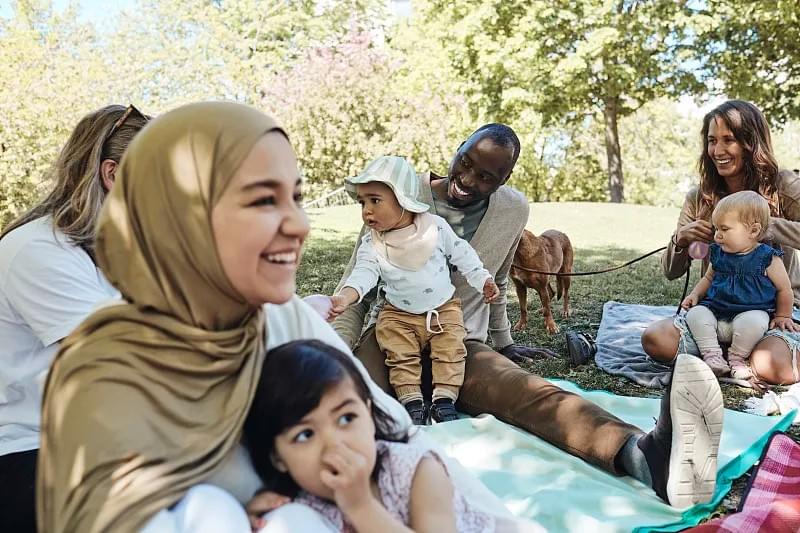In today’s rapidly evolving social landscape, the traditional definition of family is undergoing a profound transformation. No longer confined to the nuclear model of two parents and their biological children, families now come in a wide array of forms—blended, single-parent, LGBTQ+ households, co-parenting arrangements, and families formed through assisted reproductive technologies (ART). Among these, surrogacy has emerged as a pivotal pathway for individuals and couples who face barriers to biological parenthood. This article explores the intersection of surrogacy and diverse family structures, highlighting how this reproductive option supports inclusivity, challenges societal norms, and redefines what it means to build a family in the 21st century.
The Rise of Surrogacy in Modern Society
Surrogacy, the process by which a woman carries and gives birth to a child for another individual or couple, has transitioned from a niche medical procedure to a globally recognized family-building option. Advances in reproductive medicine, particularly in vitro fertilization (IVF), have made gestational surrogacy more accessible and successful. Unlike traditional surrogacy, where the surrogate is genetically related to the child, gestational surrogacy involves implanting an embryo created from the intended parents’ or donors’ genetic material into the surrogate’s uterus. This distinction has helped clarify legal and emotional boundaries, making the process more acceptable in many jurisdictions.
The demand for surrogacy has grown significantly, driven by medical infertility, same-sex male couples, single individuals, and those with genetic disorders who wish to have children. Countries such as the United States, Canada, Georgia, and Ukraine have become hubs for ethical surrogacy programs, offering legal frameworks that protect the rights of all parties involved.

Surrogacy as a Catalyst for Inclusive Family Formation
One of the most significant contributions of surrogacy is its role in enabling LGBTQ+ individuals and couples to become parents. For gay male couples, surrogacy is often the only way to have a biological child. With the help of an egg donor and a gestational carrier, both partners can be genetically connected to their child—one providing sperm, and the other potentially doing so if using embryos created from both partners’ sperm (in cases of multiple births). This biological connection fosters a deep sense of belonging and legitimacy in their parental journey.
Similarly, single men and women who face fertility challenges or choose to parent independently are increasingly turning to surrogacy. For transgender individuals, surrogacy can be part of a broader reproductive autonomy, allowing them to build families in alignment with their gender identity. These scenarios underscore how surrogacy transcends traditional biological and social constraints, offering a personalized route to parenthood.
Moreover, surrogacy supports families formed across international borders. Intended parents from countries where surrogacy is restricted or illegal often travel to more permissive nations, creating what is known as "reproductive tourism." While this raises ethical and legal considerations, it also highlights the global demand for family-building solutions that respect individual choice and human rights.

Legal and Ethical Considerations Across Borders
Despite its benefits, surrogacy remains a complex and often controversial practice, primarily due to varying legal frameworks around the world. In some countries, commercial surrogacy is banned, while altruistic surrogacy is permitted under strict conditions. Others have comprehensive laws that regulate contracts, parental rights, and compensation for surrogates.
For example, in the United States, surrogacy laws differ by state. California is known for its surrogacy-friendly legislation, offering clear legal pathways for intended parents, including same-sex couples and non-residents. In contrast, states like New York previously had restrictive laws, though recent reforms have begun to change that landscape.
Ethical concerns often center on the potential exploitation of surrogates, particularly in low-income countries where women may be financially vulnerable. Ensuring informed consent, fair compensation, psychological support, and access to healthcare is critical to maintaining ethical standards. Reputable surrogacy agencies and fertility clinics now emphasize transparency, rigorous screening, and legal counsel for all parties to safeguard everyone’s well-being.
International surrogacy arrangements also pose challenges, such as citizenship and passport issuance for the child. High-profile cases where children were denied entry to their parents’ home countries have prompted calls for greater international cooperation and standardized regulations.

The Emotional and Psychological Dimensions of Surrogacy
The journey of surrogacy is not only medical and legal but deeply emotional. For intended parents, the process can be filled with hope, anxiety, and anticipation. The inability to carry a child themselves can evoke feelings of loss or inadequacy, which surrogacy helps to heal. Building a relationship with the surrogate—whether close or more formal—can be a powerful experience of gratitude and connection.
Surrogates, too, undergo a significant emotional journey. Most are motivated by altruism and the desire to help others experience the joy of parenthood. Many report a sense of fulfillment and pride after birth. However, postpartum emotional adjustment is essential, and ethical programs include counseling and follow-up support to ensure the surrogate’s mental health is prioritized.
Openness and communication are key to a successful surrogacy experience. Some families maintain lifelong connections with their surrogate, while others prefer a more private arrangement. Regardless of the level of contact, mutual respect and empathy form the foundation of a positive outcome.
For children born through surrogacy, openness about their origins is increasingly encouraged. Experts in child psychology recommend age-appropriate conversations about how they were conceived, fostering a healthy sense of identity and belonging. As society becomes more accepting of diverse family structures, children are less likely to face stigma and more likely to embrace their unique story.
Redefining Family in the 21st Century
Surrogacy is more than a medical procedure—it is a reflection of society’s growing recognition of diverse family structures. It challenges the notion that biology is the sole basis of family, emphasizing instead the values of love, intention, and commitment. Whether it’s a single father by choice, a lesbian couple using reciprocal IVF and a gestational carrier, or a heterosexual couple overcoming infertility, surrogacy enables people to become parents on their own terms.
This shift is supported by changing cultural attitudes and increasing visibility of non-traditional families in media, education, and policy. Governments and institutions are gradually adapting to recognize and protect these families through inclusive laws, parental leave policies, and anti-discrimination measures.
Furthermore, surrogacy intersects with broader movements for reproductive justice, gender equality, and human rights. It empowers individuals to make autonomous decisions about their bodies and their futures, whether they are intended parents or surrogates.

Conclusion: A Future of Inclusive Parenthood
As we move further into the 21st century, the concept of family will continue to expand and diversify. Surrogacy stands at the forefront of this evolution, offering a viable, compassionate, and increasingly accepted path to parenthood for those who might otherwise be excluded. By embracing surrogacy within the broader context of diverse family structures, society affirms that love and care—not biology or tradition—are the true foundations of a family.
For intended parents, surrogates, and the children they bring into the world, this journey is not just about building families—it’s about redefining them. As legal frameworks improve, ethical standards rise, and cultural acceptance grows, surrogacy will play an even greater role in shaping the future of human connection and kinship.
By understanding and supporting these modern pathways to parenthood, we create a more inclusive world where every individual has the opportunity to experience the profound joy of family.
